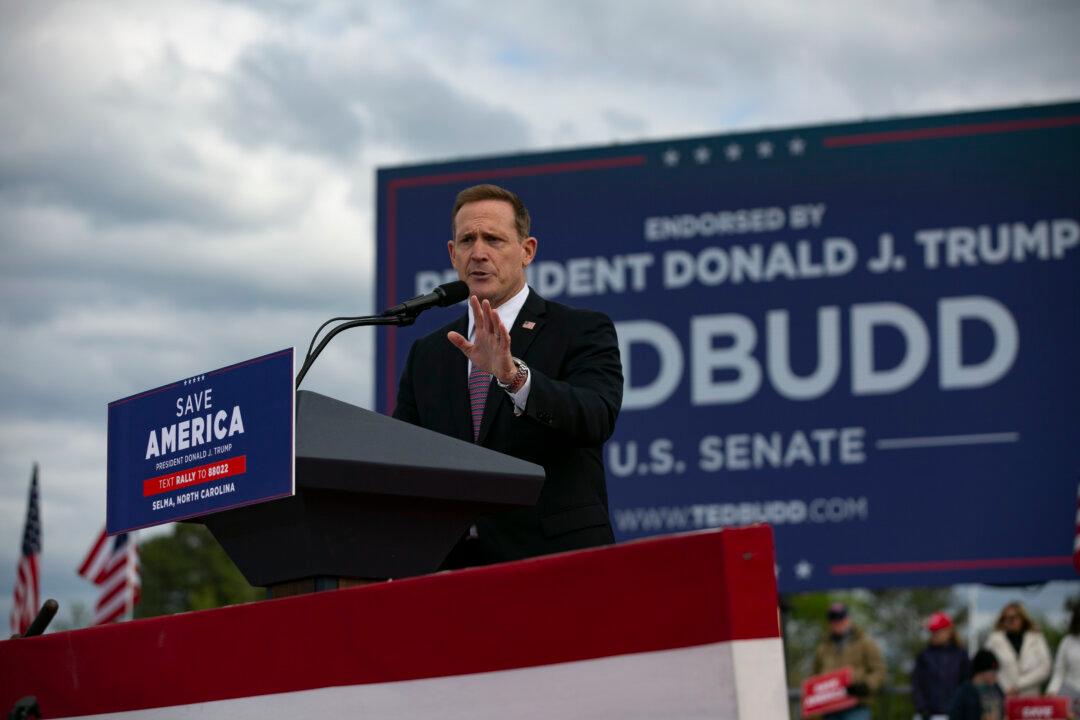North Carolina’s Democratic and Republican voters on May 17 will choose their respective nominees for a vacant U.S. Senate seat, setting up what might prove one of the closest races in the fall midterms.
Eleven candidates are seeking the Republican nomination, including frontrunners former Gov. Pat McCrory, Rep. Ted Budd, and former Rep. Mark Walker. Incumbent GOP Sen. Richard Burr, who isn’t seeking a fourth term, won the seat by 5.7 percentage points in 2016. In the last presidential election, then-President Donald Trump won the state by 1.3 points.




